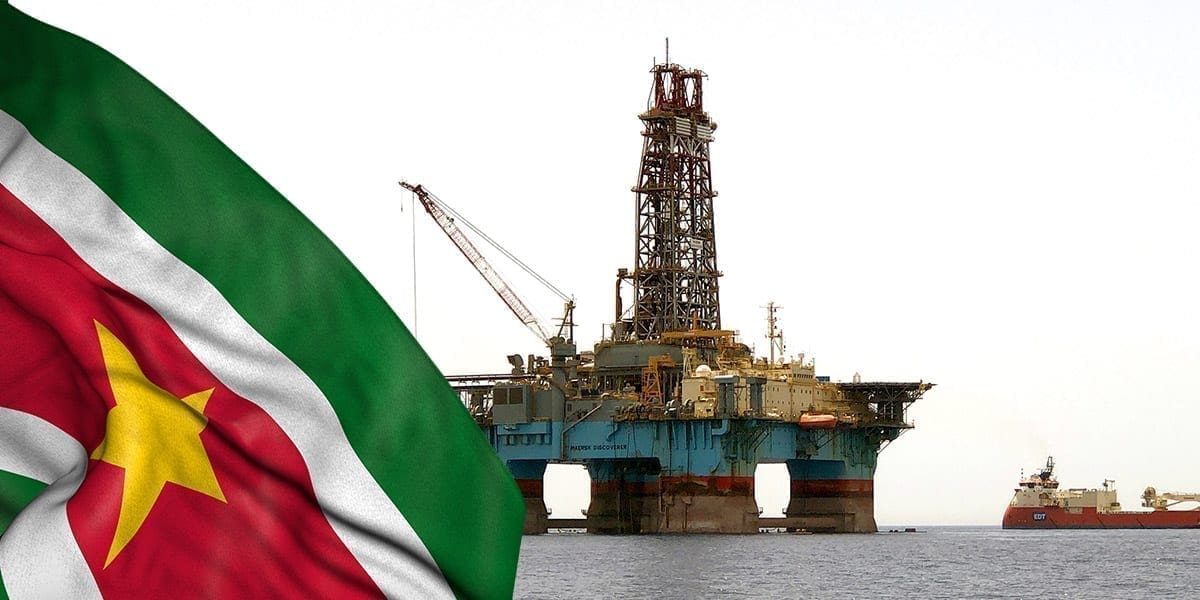Suriname published a new State Decree S.B. 2025 No. 124 on October 22, with the name of ‘Decree on Task Description of Ministries 2025’ taking effect retroactively from July 16th, 2025. At first, it appears to be an administrative update, but behind this administrative decree lies a significant legal and institutional realignment, one that defines how the country will manage its petroleum sector at the start of a transformative decade.
For more than thirty years, the Ministry of Natural Resources acted as the central authority for mining, energy, water and forestry. It was also the oversight authority of Staatsolie Maatschappij Suriname N.V., the state-owned oil company created in 1980.
This new decree formally establishes and defines the tasks of the Ministry of Oil & Gas and Environment, carving out the country’s petroleum portfolio from the long-standing Ministry of Natural Resources.
The newly created Ministry is described in Article 22 of the 2025 decree and is tasked with:
- Developing national policy for the government concerning the exploration, exploitation, production, and management of oil and gas reserves.
- Preparing laws and regulations for the oil and gas sector, ensuring a balance between economic development and environmental protection.
- Managing, maintaining, and updating the National Petroleum Database to provide accurate and up-to-date data for policymaking, oversight, and investment.
- Developing, maintaining, and managing a National Oil Spill Response Plan, in collaboration with the National Coordination Center for Disaster Management (NCCR) and other stakeholders, to ensure preparedness for environmental risks and emergencies.
- Advising the government on Production Sharing Contracts (PSCs), with special attention to safety and data acquisition.
- Developing a sustainable local content policy aimed at promoting entrepreneurship, employment, and capacity building in Suriname.
- Encouraging investment in the oil and gas sector in line with international safety and environmental standards, ensuring that national resources contribute to social and economic development.
- Aligning sector policies and activities with national climate goals and international obligations to harmonize petroleum development with the transition to a low-carbon economy.
- Providing administrative support to the National Environmental Authority.
In practical terms, this means the new ministry, led by Patrick Brunings, becomes the government’s primary counterpart for all petroleum-related matters, from exploration strategy to PSC oversight and local capacity development. It also carries environmental and climate responsibilities, aligning Suriname’s oil governance with the country’s broader sustainability agenda.
It’s a structural shift with both symbolic and practical importance. Symbolic, because it acknowledges the central place of oil and gas in Suriname’s development strategy. Practical, because it consolidates policy, oversight and environmental safeguards under one roof at a time when the country is preparing for first offshore oil in mid-2028.
This change does not create a new petroleum legislation; it reassigns authority within existing laws. The Petroleum Law of 1990 (S.B. 1990 No. 7) remains the principal legal instrument governing exploration and production in Suriname – for now – with the Mining Decree of 1986 (S.B. 1986 No. 28) in the background. That law designates the State as the owner of all petroleum resources and authorizes the “Minister of Natural Resources” to act on behalf of the State in granting rights and signing contracts. With the creation of the new ministry that authority is now transferred.
In effect, Suriname has redefined its chain of command. Staatsolie, once reporting to a multi-sector ministry, now falls under a focused energy and environment portfolio. The legal foundation remains the same, but the administrative pathway has changed, a quiet but meaningful evolution in how Suriname governs its most promising sector.



